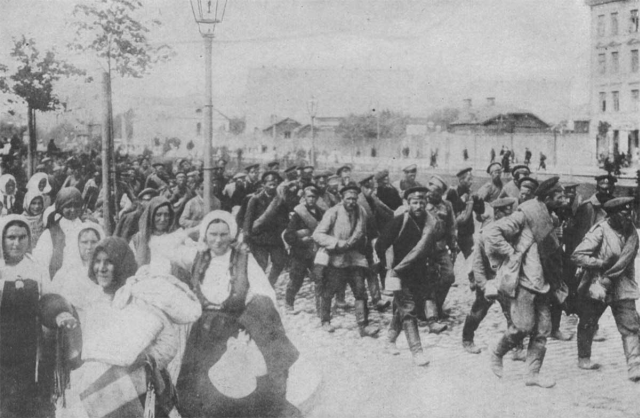Romania and the Peace Negotiations of 1919
At the end of WWI, Romania stood on the winning side, but faced difficulties

Steliu Lambru, 10.02.2020, 14:00
At the end of WWI, Romania stood on the winning side. Before the end of 1918, the territories inhabited by Romanians in the Russian and Austro-Hungarian empires had united with the Romanian Kingdom, and the country was awaiting for peace treaties to confirm the new borders. However, the international confirmation of the new Romania did not go that smoothly, and peace was made by a laborious process. The country had to face opposition from allies that leveled accusations at it, which it responded to in kind. The tension reached a point at which the artisan of Romanias joining the war, Liberal politician Ion I. C. Bratianu, left the peace negotiations in a fury over the fact that Romania was not getting all the benefits of the 1916 Convention that had been the basis of it joining the allies in the first place.
We invited historian Ioan Scurtu to summarize the story of the 1919 disputes between Romania and the Allies, France, the UK, Italy, and the US:
“Romania was forced to sign a separate peace treaty with the Central Powers as a result of the fact that Russia had gone out of the war, and Romania was left alone on the Eastern front. But it did sign the peace, as far as documents go, with agreement from its allies. The 1916 Convention granted a lot of advantages to Romania, Ion Bratianu had negotiated very well on its behalf. It was a time when France faced great difficulty on the Western front, and the Russian army had a hard time prevailing in Galicia. And then it was thought the time had come for Romania to intervene to draw away as large a number as possible of German and Austro-Hungarian troops from the two fronts. Considering all this, concessions were made which at the end of the war France started to regret.”
Against the critical situation facing France in 1916, the need for Romania to join the war was itself critical. Ioan Scurtu believes that Romania played its cards right, managing to gain major advantages, and he told us about them:
“The first order of business was the northern border, which Bratianu drew with extraordinary pedantry. He specified the course of the border by naming each hill, river, village, and so on, so that when the peace conference would set the border things would be settled. This border went on the Tisza river down to its confluence with the Danube, which annoyed Serbia, which claimed in its turn that this was way too close to Belgrade, withing range of a cannon strike, and that it had to have a buffer, even though Romania had committed to not militarize that border.”
The Paris Peace Conference started in January 1919, and Romania went there to get its due. However, interests were at play, and compromises were to be made as a result. Here is Ioan Scurtu again:
“There were big differences between the four great parties, the President of the US, the prime ministers of the UK, France, and Italy, and Ion Bratianu, who believed, based on the provisions of the Convention of August 4, 1916, that signatory states would be granted equal standing at the peace conference. However, at the peace conference a supreme council had been set up that had decided that member states would have unlimited status, while the others, including Romania, had been relegated to limited status. Based on the fact that President Wilson was militating for equality among states, for democracy and democratic settlement of disputes among states, Bratianu insisted that Romania be treated on equal footing. However, Wilson himself rebuffed that, telling him at the conference that each state was equal to its military might.”
Bratianu himself had to step back his intransigence. His successor, Alexandru Vaida Voievod, came to sign the treaties that endorsed Greater Romania. Here is Ioan Scurtu once again:
“It was not possible for a small country, with territorial claims, which had to gain its union through treaties, to claim equality with the US, France, Great Britain, and Italy. Even Bratianu realized that, and left Alexandru Vaida Voievod in charge of the Romanian delegation, after advising him to become a Free Mason. Bratianu had found out that many decisions were made in the dead of night by the brothers. He was not privy to that, since he was not a member of any Free Mason organization. Vaida, however, was malleable, and realized he didnt have a choice. Vaida explained in Parliament that he had stumbled into a pit and had dragged Romania along, but his feeling was that the delegations of the Allies were in the same pit.”
Romania eventually obtained recognition for the union of Bukovina and Romania by treaty with Austria, the recognition of the union of Transylvania and Romania, and the union with two thirds of Banat by treaty with Hungary, which were its demands in the first place.






























